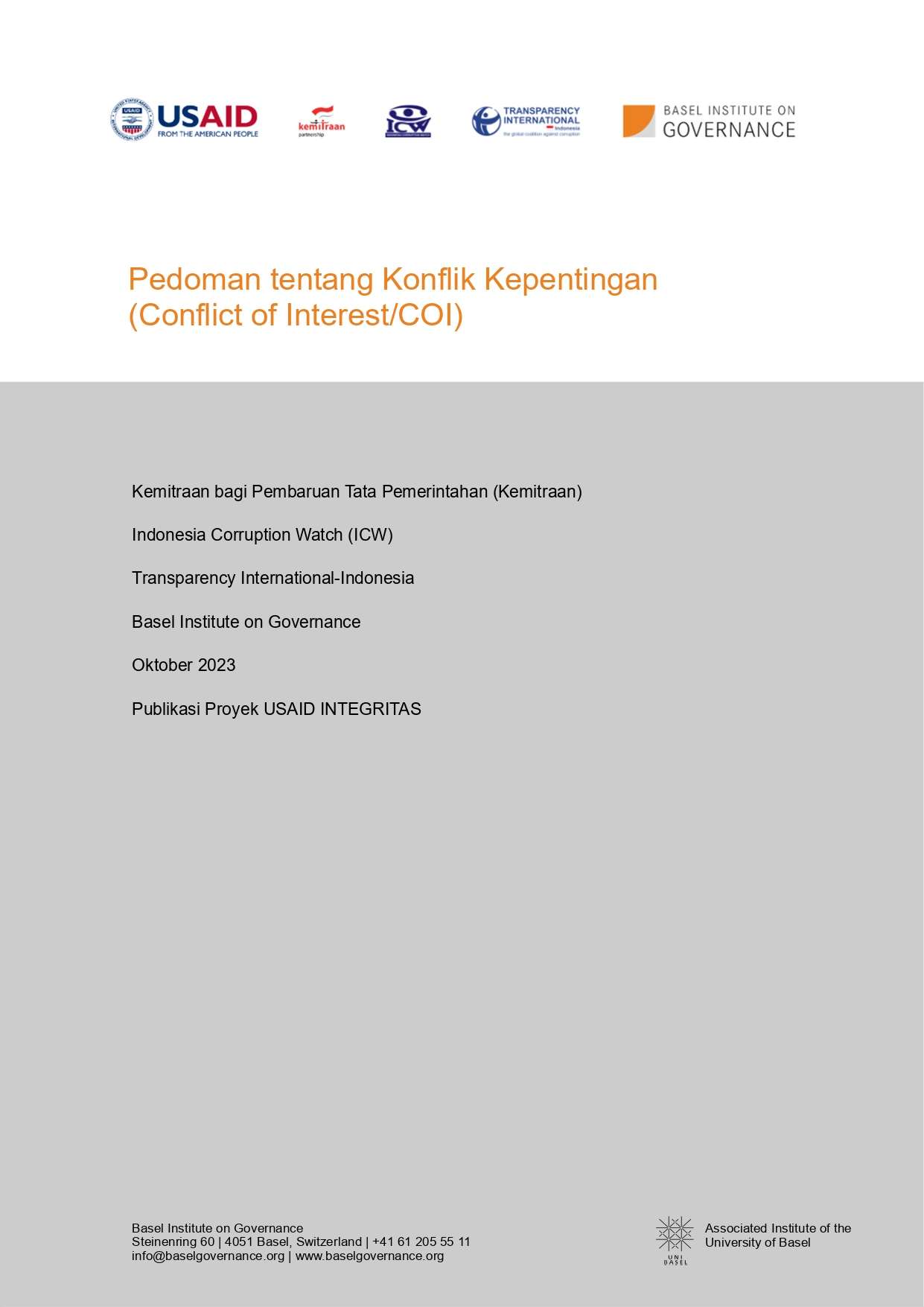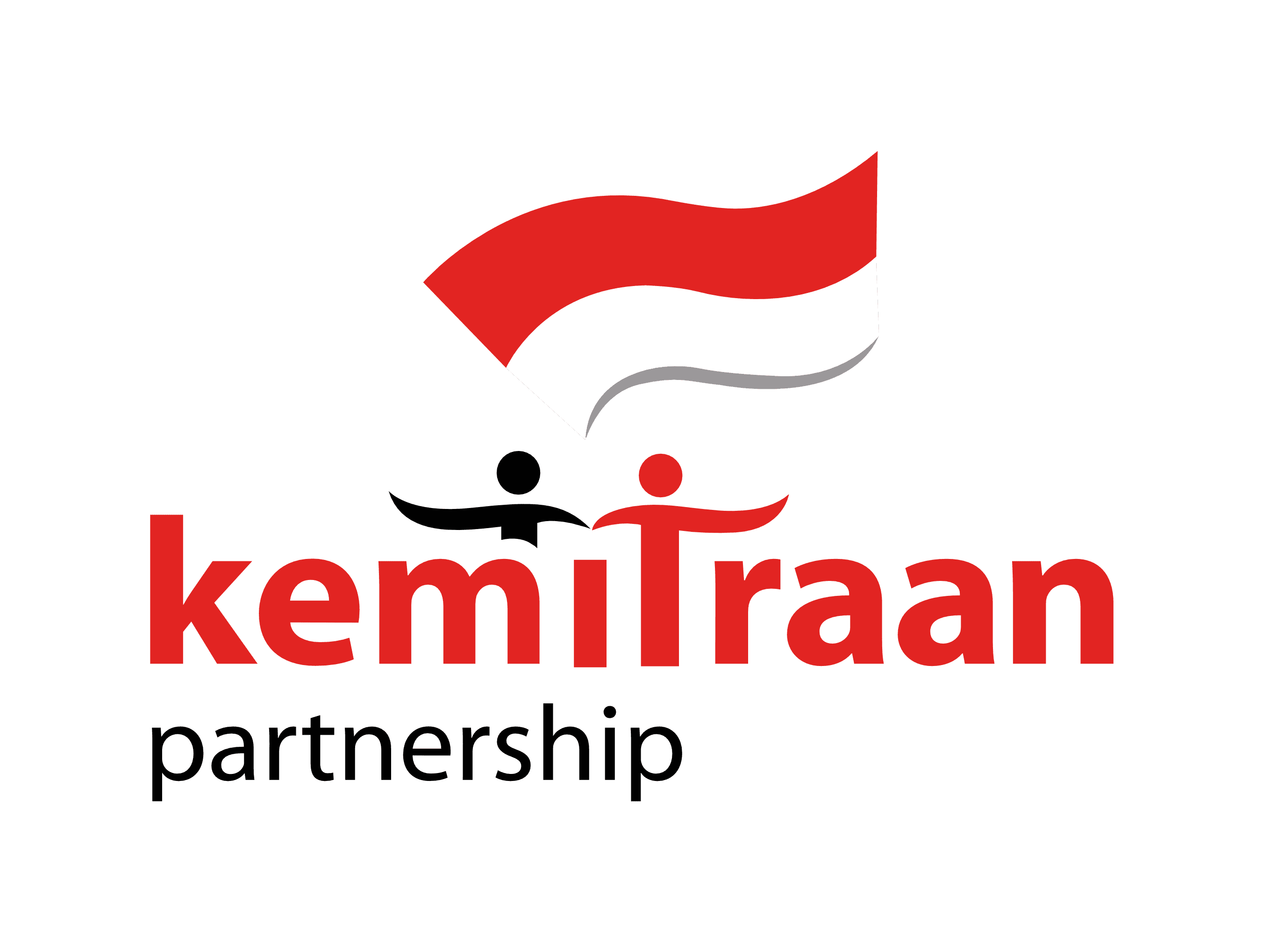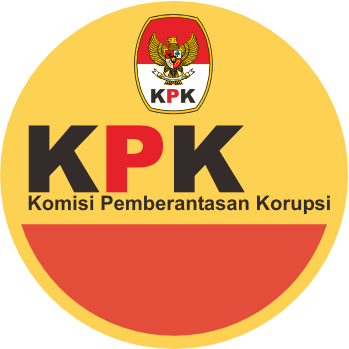
Since its democratic transition in 1998, Indonesia has developed a series of anti-corruption laws and policies and enforcement agencies successfully investigated and prosecuted high-level individuals, including ministers, heads of institutions, lawmakers, and police generals. However, Indonesia’s efforts to tackle graft have primarily focused on outright corruption – the first element of the popular rallying cry against “corruption, collusion, and nepotism” at the time. As such, insufficient progress has been made toward tackling collusion and nepotism, behaviours that are related to conflict of interests, and form a central piece to Indonesia’s corruption prevention efforts.
Through the USAID INTEGRITAS program, KEMITRAAN and its consortium partners – Indonesia Corruption Watch (ICW), Transparency International – Indonesia (TI-I), and the Basel Institute on Governance – are working to enhance conflict of interest (COI) policy and its implementation.
The new COI Guidelines released here build on the USAID INTEGRITAS consortium’s rich stakeholder engagement and research efforts, including the COI Gap Analysis, the consortium’s case studies, and relevant international best practices. The COI Guidelines also incorporate the topic of sextortion and are among the first COI Guidelines in Indonesia to take on the issue explicitly.
These resulting guidelines serve as an applicable reference for regulating COIs in Indonesia, covering the legal frameworks and institutional design. These COI Guidelines are designed to be technical and compact so that stakeholders can use the document at a practical level.
The development of these guidelines was led by the Basel Institute on Governance, in cooperation with KEMITRAAN, Indonesia Corruption Watch (ICW), and Transparency International Indonesia (TI-I). The original version was produced in English by the Basel Institute and was subsequently translated into Bahasa Indonesia by KEMITRAAN.
These guidelines were made possible by the support of the American people through the United States Agency for International Development (USAID). The contents are the sole responsibility of the Basel Institute on Governance and KEMITRAAN and do not necessarily reflect the views of USAID or the United States Government.






